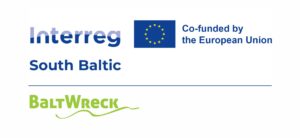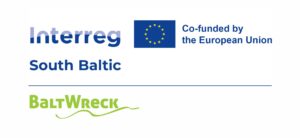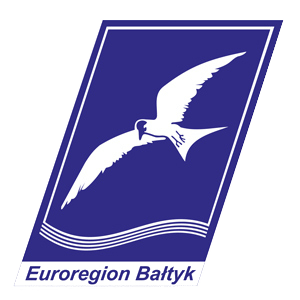
BALTWRECK
Interreg South Baltic No STHB.02.02-IP.01-0009/23

University of Gdańsk /UG (PL)
Association of Polish Communes Euroregion Baltic /APC ERB (PL)
Gdynia Maritime University /GMU (PL)
Klaipeda University /KU (LT)
Leibniz-Institute for Baltic Sea Research Warnemünde /IOW (DE)
JT Ship Service Tomasz Jatkowski /JTSS (PL)
Helmholtz Centre for Ocean Research Kiel /GEOMAR (DE)
Nature Research Centre /NRC (LT)
Chalmers University of Technology /CHALMERS (SE)
German Environment Agency /UBA (DE)
North.io LtD. /NIO (DE)
CLEANERGY LtD. /CE (PL)
Jagiellonian University /UJ (PL)
Project related events

BaltWreck Online Meeting – Consequence Assessment
On January 20, an online meeting of the BaltWreck project partners was held, dedicated to the topic of Consequence Assessment. […]

Research Cruise as Part of the BaltWreck Project – Part 3!
The third part of the report from the September research cruise carried out as part of the BaltWreck project – […]

Research Cruise as Part of the BaltWreck Project – Part 2!
We invite you to watch the first part of the report – a short summary of the September research cruise […]

Research Cruise as Part of the BaltWreck Project!
We invite you to watch the first part of the report – a short summary of the September research cruise […]
Promotion of BaltWreck project at international conference in Sopot
The international event 4th Mission Arena Blue Mission BANOS took place in Sopot on April 28-29, during which the BaltWreck […]

SCONE - Students' Sustainability Camp in Lithuania
On April 23-25, 2025, an international Students' Sustainability Camp was held in Rietavas, Lithuania, with the aim of promoting education […]
European projects for safe seas
European Projects for Safe SeasWe are pleased to present an information brochure prepared as part of the promotion of the […]
BALTWRECK - Preventing massive marine waters chemical pollution from the leaking wrecks and munition
The project is concerned with combating various hazardous substances in the aquatic environment in order to increase safety and water quality. There are about 20,000 known military and civilian shipwrecks at the bottom of the Baltic Sea, of which about 10 per cent are a source of contamination from fuels or remnants of sunken munitions. More than 80 years after the Second World War, hazardous fuel is leaking from some of the rusted wrecks (e.g. carcinogenic pyrolytic oil from the ‘Stuttgart’ has already contaminated 40 ha of the Bay of Gdansk). Other wrecks are close to decomposition and need to be carefully monitored to assess the risk and the real threat to marine life and the impediment to a variety of economic activities on the seabed. Decisions on monitoring, clean-up or exclusion of anthropogenic activities in the vicinity of wrecks are extremely slow, as costly and intensive studies are needed in each case.
The BaltWreck initiative believes that the time has come to bring together all relevant marine research institutions, maritime administrations and decision-makers in the region to solve this major transboundary challenge in a methodological, efficient and internationally compliant manner.
The aim of the BaltWreck project is to contribute to the reduction of pollution of the Baltic Sea by ammunition, hazardous fuel and other dangerous shipwreck residues through the joint development, demonstration and implementation of national wreck management programmes.
PROJECT BRIEF
Program: Interreg South Baltic
Project area: Water safety, environmental protection, pollution reduction, scientific activities
Project scope: European or transnational (mainly Baltic Sea countries)
Role of STG ERB: Partner with its own budget
Level of funding: 80%
Project budget: 4 000 000, 00 EUR
STG ERB budget: 133 316, 00 EUR
Project consortium: Project implemented with 14 full partners and 7 associated partners from PL, LT, SE, DK
